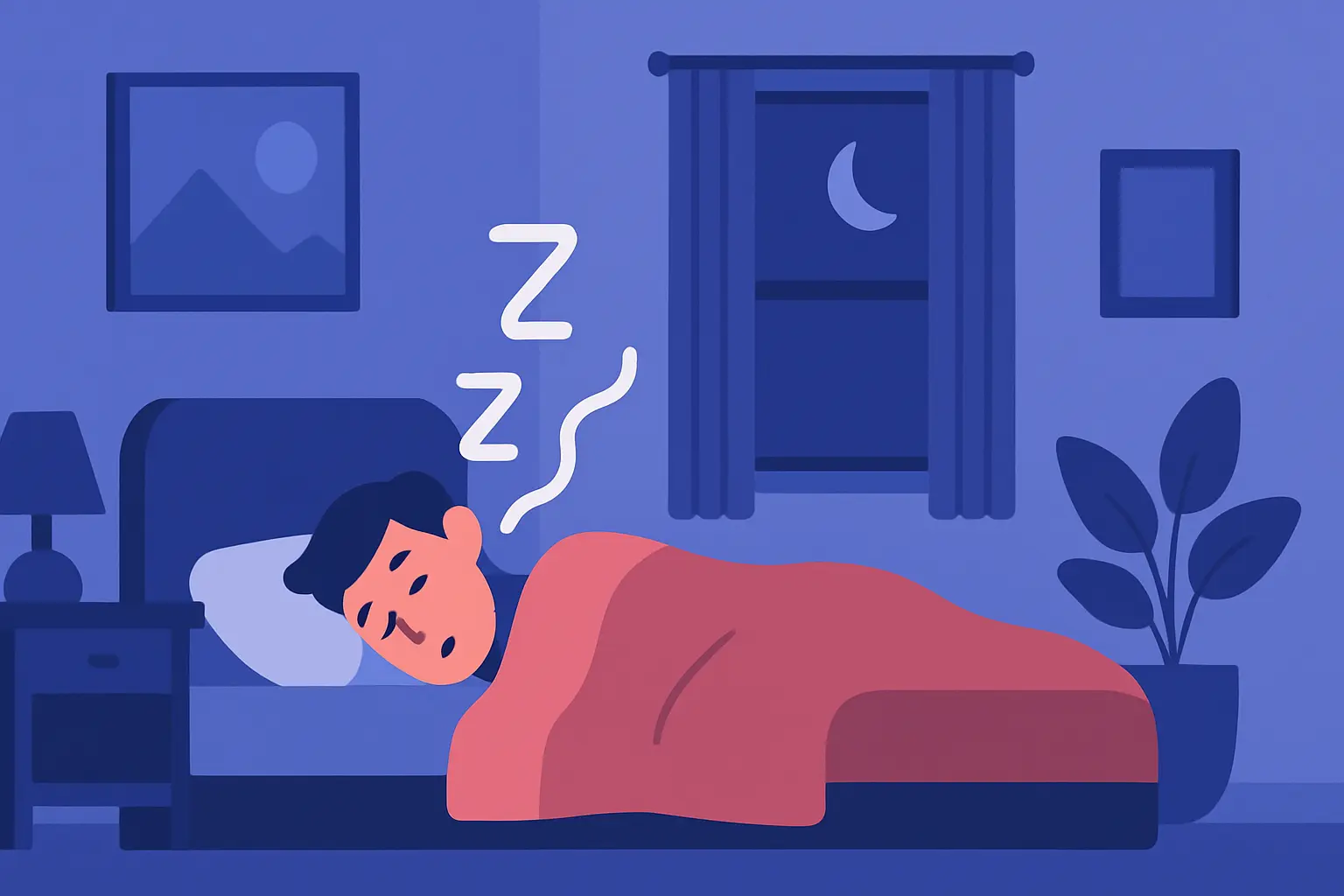Insomnia and Anxiety: How Worry Disrupts Your Nights
“Why is it always at 2 a.m. that my brain decides to run a marathon?” If that sounds familiar, you’re not alone. Insomnia and anxiety often go hand in hand. Stressful thoughts, work deadlines, or personal worries can turn your nights into endless loops of overthinking.
Why Anxiety Keeps You Awake
Anxiety triggers your body’s fight-or-flight response, releasing cortisol and adrenaline. While helpful during daytime challenges, these hormones at night interfere with your natural sleep cycle. Common signs include:
- Racing thoughts that prevent sleep onset
- Tossing and turning multiple times a night
- Light, fragmented sleep with frequent awakenings
- Feeling exhausted but restless in the morning
Even low-level anxiety can have cumulative effects on sleep quality over weeks or months.
Simple, Practical Ways to Calm Your Mind
-
Set a nightly wind-down ritual
Dim lights, read a calming book, or try gentle stretching. Consistency signals your brain it’s time to sleep. -
Write it down
Journaling worries or creating a “to-do tomorrow” list can prevent mental loops. -
Mindfulness or meditation
Breathing exercises, progressive muscle relaxation, or guided sleep meditations reduce cortisol and prepare your body for deep sleep. -
Limit evening screen time
Blue light and notifications keep your brain alert. Consider a 60–90 minute screen-free buffer before bed. -
Track your sleep patterns
Apps like SnailSleep record sleep cycles, restless moments, and snoring. Seeing patterns helps you identify anxiety triggers impacting your sleep.
Real-Life Example: Olivia’s Evening Reset
Olivia, a 30-year-old freelance designer, struggled with insomnia linked to anxiety about deadlines. By establishing a nightly journaling habit, practicing 10-minute meditation, and tracking sleep with a smart app, she noticed falling asleep became faster and her mornings more energetic. After a few weeks, her racing thoughts no longer hijacked her night.
Lifestyle Habits That Support Better Sleep
- Exercise during the day: Helps burn excess energy and reduces anxiety.
- Avoid late caffeine: Even small amounts can stimulate your nervous system.
- Create a cozy sleep environment: Darkness, cool temperature, and quiet help melatonin production.
Small adjustments in both mindset and routine can dramatically improve sleep quality, even for chronic worriers.
When Anxiety-Related Insomnia Needs Extra Help
If insomnia persists despite these strategies — waking multiple times, fatigue, irritability, or concentration problems — professional support may be necessary. Cognitive Behavioral Therapy for Insomnia (CBT-I) or a sleep specialist evaluation can provide structured guidance, complemented by sleep tracking apps for objective insights.
Related Articles
- Digital Age Insomnia — How Screens Are Stealing Your Sleep
- Insomnia and Anxiety: How Worry Steals Your Sleep
- How Stress Sabotages Your Sleep — And What You Can Do About It

